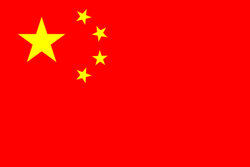 An American research team has found preliminary evidence for the effectiveness of acupuncture in reducing the incidence of high grade chemotherapy-induced peripheral neuropathy, in women being treated for breast cancer. A total of 104 stage I-III breast cancer patients receiving weekly paclitaxel (Taxol) treatment, were screened for symptoms of peripheral neuropathy (usually manifesting as numbness and tingling in the hands and feet). Of these, 37 developed symptoms, and 27 were then given acupuncture. Of the latter, 26 completed chemotherapy treatment without a significant worsening of neuropathy symptoms.
An American research team has found preliminary evidence for the effectiveness of acupuncture in reducing the incidence of high grade chemotherapy-induced peripheral neuropathy, in women being treated for breast cancer. A total of 104 stage I-III breast cancer patients receiving weekly paclitaxel (Taxol) treatment, were screened for symptoms of peripheral neuropathy (usually manifesting as numbness and tingling in the hands and feet). Of these, 37 developed symptoms, and 27 were then given acupuncture. Of the latter, 26 completed chemotherapy treatment without a significant worsening of neuropathy symptoms.
The researchers conclude acupuncture is safe and shows preliminary evidence of effectiveness in reducing the incidence of high grade peripheral neuropathy. A follow-up randomised controlled trial is needed to establish definitive efficacy for patients at risk.
(A phase IIA trial of acupuncture to reduce chemotherapy-induced peripheral neuropathy severity during neoadjuvant or adjuvant weekly paclitaxel chemotherapy in breast cancer patients. European Journal of Cancer, September 2018.)

